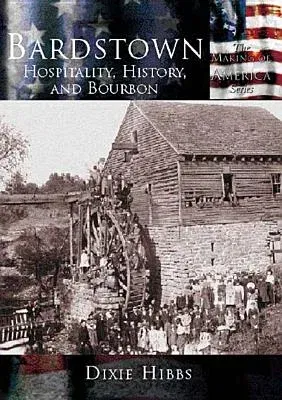Dixie Hibbs
(Author)Bardstown:: Hospitality, History and BourbonPaperback, 23 October 2002

Qty
1
Turbo
Ships in 2 - 3 days
In Stock
Free Delivery
Cash on Delivery
15 Days
Free Returns
Secure Checkout

Part of Series
Making of America
Print Length
160 pages
Language
English
Publisher
Arcadia Publishing (SC)
Date Published
23 Oct 2002
ISBN-10
0738523917
ISBN-13
9780738523910
Description
Product Details
Author:
Book Format:
Paperback
Country of Origin:
US
Date Published:
23 October 2002
Dimensions:
25.35 x
17.32 x
1.04 cm
ISBN-10:
0738523917
ISBN-13:
9780738523910
Language:
English
Location:
Charleston, SC
Pages:
160
Publisher:
Series:
Weight:
390.09 gm